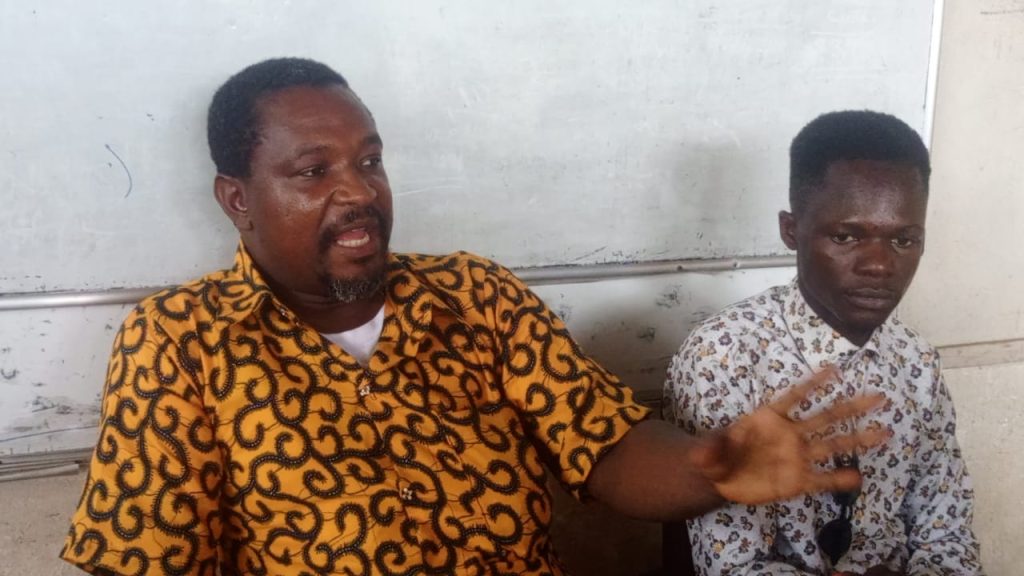The heart of Nimba County, Liberia, reverberates with discord as communities clash with their Senator, Nyan Twayen, over his scathing critique of ArcelorMittal Liberia (AML), a multinational steel giant operating within the region. Senator Twayen’s accusations paint a grim picture of AML’s operations, alleging bad labor practices, breaches of the Mineral Development Agreement (MDA), exploitative financial maneuvering, and a failure to deliver on promises made to the people of Nimba despite two decades of operation and substantial profits. This condemnation follows closely on the heels of AML’s unveiling of a $1.8 billion concentrator, a project intended to signify growth and investment in the region. The Senator’s pronouncements have ignited a firestorm of debate, dividing the community and raising questions about the true nature of AML’s presence in Nimba.
In direct opposition to Senator Twayen’s stance, representatives of Nimba’s affected communities have vehemently denounced his assertions, accusing him of pursuing self-serving interests while simultaneously jeopardizing their relationship with AML. These community representatives argue that AML is, in fact, adhering to the terms of the MDA and contributing significantly to their socio-economic well-being. They highlight a multitude of benefits derived from the agreement, portraying a narrative of progress and partnership rather than exploitation and neglect. This sharp contrast in perspectives creates a complex tapestry of conflicting accounts, leaving observers grappling with the question of who truly speaks for the interests of Nimba County.
The affected communities underscore AML’s investments and contributions, citing substantial figures and tangible projects. They point to a $47 million investment in socio-economic development, the rehabilitation of a 243km railroad, the revitalization of the Buchanan port, adherence to employment quotas, the establishment of a vocational training center, provision of scholarships, access to schooling for dependents, payment of taxes and royalties exceeding $424 million, and investments in community health infrastructure. This litany of accomplishments, they argue, stands in stark contrast to Senator Twayen’s accusations, painting a picture of a company committed to its obligations and contributing positively to the region’s development.
Adding fuel to the fire, the Nimba University Students Association (CONUSA) has petitioned the Liberian Legislature, echoing some of Senator Twayen’s concerns and urging a review of the AML MDA. They warn of potential environmental devastation and economic marginalization amidst corporate exploitation, aligning themselves, at least partially, with the Senator’s critical perspective. This intervention further complicates the situation, introducing another voice into the debate and raising the stakes for both AML and the Liberian government.
Community representatives, however, vehemently defend AML, expressing disbelief at Senator Twayen’s seemingly disregard for the nearly 10,000 jobs created by the company. They accuse him of attempting to drive AML out of Liberia with his “shameful comments” and express their unwillingness to support any politician who engages in such divisive rhetoric. They further criticize Senator Twayen for his alleged lack of engagement with the community, claiming he has failed to report back to the people of Nimba or identify with their concerns since taking office. This underscores a deeper discontent with their elected representative, suggesting a perceived disconnect between his actions and the needs of his constituents.
This is not the first time AML has faced such accusations. In 2022, former Representative Roger Domah similarly criticized the company for allegedly failing to meet its MDA commitments. This recurring pattern of criticism suggests a persistent tension between AML and certain segments of the Nimba community, regardless of the specific individuals voicing the concerns. The current dispute, however, highlights the deep divisions within Nimba County and the conflicting narratives surrounding AML’s impact on the region. The competing claims and accusations underscore the need for a thorough and transparent assessment of AML’s operations and their adherence to the MDA, aiming to establish a clear understanding of the situation and address the underlying concerns of the affected communities. This complex situation demands a nuanced approach, acknowledging the valid perspectives on both sides while seeking a resolution that promotes sustainable development and addresses the genuine needs of the people of Nimba County.


